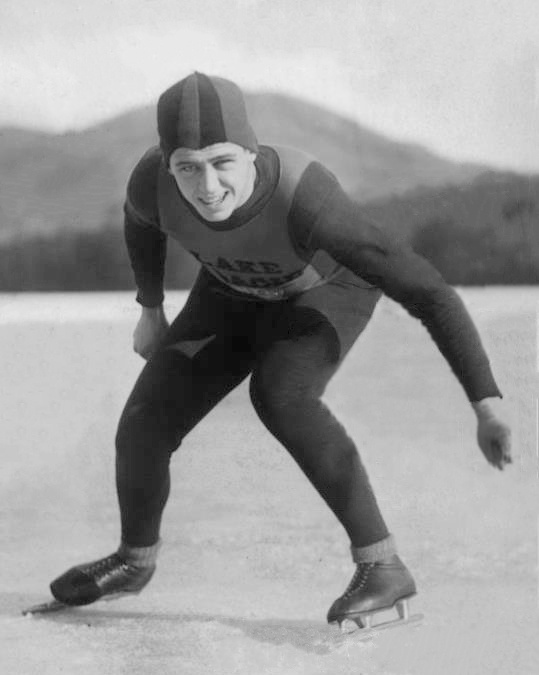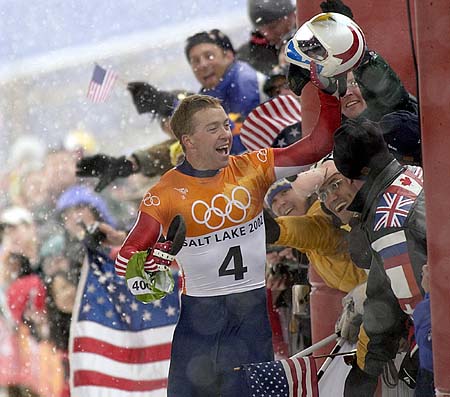Since the ancient past, societies have honored athletes. Athletic competition may have developed out of pragmatic concerns such as training warriors, but it was soon realized that certain individuals were gifted with exceptional talents. In the Ancient Olympic Games winning competitors were awarded Olive Wreaths and honored as human incarnations of Apollo; in modern times they are honored with some of the highest salaries in the world. These honors are given in recognition of how exceptional athletic prowess is in on one individual; what then would be the likelihood of finding world class athleticism in three different sports in three generations of one family? One would be forgiven if they were to say it was impossible if they did not know of the Sheas.
The Shea family traces their roots to Irish immigrants who came to America during the height of the great hunger. The Shea’s story in America begins with Michael Shea who came to the United States in 1847. He came from the area of the Dingle peninsula in County Kerry and married fellow Irish immigrant Mary Courtney. His grandson Jack Shea was born September 7, 1910 in Lake Placid, NY.

At age 3 Jack started skating at a nearby lake; by the time he was in high school, he had won the North American men’s championship. As if by preordination, while a sophomore at Dartmouth it was announced that the 1932 Winter Olympics were to be held in his hometown of Lack Placid. So well regarded was Shea by his fellow athletes that he was selected to take the Olympic Oath on their behalf in the opening ceremony. On the first day of the competition, he won the gold medal in the 500-meter speed skating event. The next day, he followed up by winning the 1,500 meters; making him the first double gold medalist in Winter Olympic history. He returned to Dartmouth to a thunderous welcome (and humorless professors who held him accountable for the classes he missed).
When it was announced that the 1936 games were to be held in Garmisch-Partenkirchen, Germany, Jack Shea refused to skate to defend his title; as a political science major, he was well aware of what was developing in Nazi Germany.
Jack Shea graduated 10th in his class from Dartmouth, but the Great Depression and the needs of his family cut short his dreams of becoming a lawyer; a regret he carried throughout his life. When it was announced that the 1936 games were to be held in Garmisch-Partenkirchen, Germany, Jack Shea refused to skate to defend his title; as a political science major, he was well aware of what was developing in Nazi Germany. Shea urged his fellow athletes publicly and privately to not support the games in Germany. Jack proceeded to a respected career in local government in his hometown and was instrumental in bringing the games back to Lake Placid for the memorable 1980 Winter Olympics; the site of the “Miracle on Ice”. Shea would continue to skate recreationally unit he was 84.
Jack’s son, Jim Shea Sr. wanted to follow in his father’s footsteps as speed skater, but his talents turned out to be in cross-country skiing. He was a member of the 1961 NCAA champion University of Denver team that won the team title in skiing. Shea made the 1964 U.S. Winter Olympic team where he competed in Nordic Combined skiing and two cross-country ski events. While he did not medal, he did go on to coach the U.S. biathlon team in the 1972 Winter Olympics.
Jack Shea’s grandson Jim Jr. took another path to the Winter Olympics by competing in Skeleton, an event where competitors ride a sled similar to a child’s “flexible flyer” down a bobsled run attaining speeds of over 80 mph and pulling 5 G’s in the turns. In 1999 Jim Jr. became the first American to win the skeleton World Championships. Skeleton had been an Olympic sport in two prior Olympics but had not been competed in 54 years. Jim Shea persuaded the U.S. Olympic Committee to make skeleton an event at the 2002 Winter Games (it has been competed ever since)
At the time of the 2002 games, 91-year-old Jack Shea was now the oldest living Winter Gold Medal Olympian. All seemed in place for a fairy tale ending. It was planned for 91-year old Jack Shea to carry the Olympic Torch into the same Lake Placid stadium where he had won dual gold medals two generations before. His grandson was selected to publicly take the Olympic Oath as his Grandfather had done seventy years earlier and the three generations of Olympic Sheas were to be honored during the opening ceremonies.

However, it was not to be. Seventeen days before the games, Jack Shea was killed just blocks from his home, when his car was hit by a van whose driver was later charged with driving while intoxicated.
With his grandfather’s funeral card tucked inside his helmet, Jim Shea won the gold medal in skeleton. After the competition an emotional Jim Shea describing his winning run told reporters “My grandpa was with me the whole way“.
The story of the Shea’s is about more than medals, it is a story of determination, principle and, most importantly, family. It is in its essence a story of Irish America.
Note: In the same 2002 Skeleton competition where Jim Shea won the Gold, Ireland’s Clifton Wrottesley missed winning Ireland’s first Winter Olympic medal by 0.32 seconds. It remains Ireland’s highest placing in the Winter Games
THIS IRISH AMERICAN HERITAGE MONTH PROFILE IS PRESENTED BY THE ANCIENT ORDER OF HIBERNIANS (AOH.COM)
#IrishAmericanHeritageMonth
Neil F. Cosgrove ©